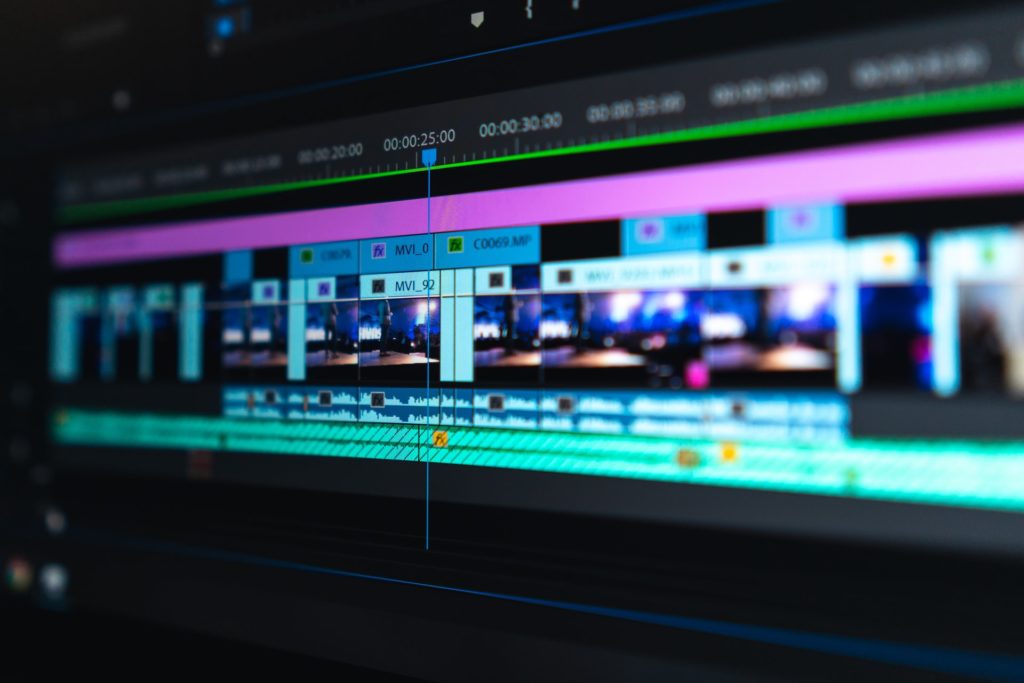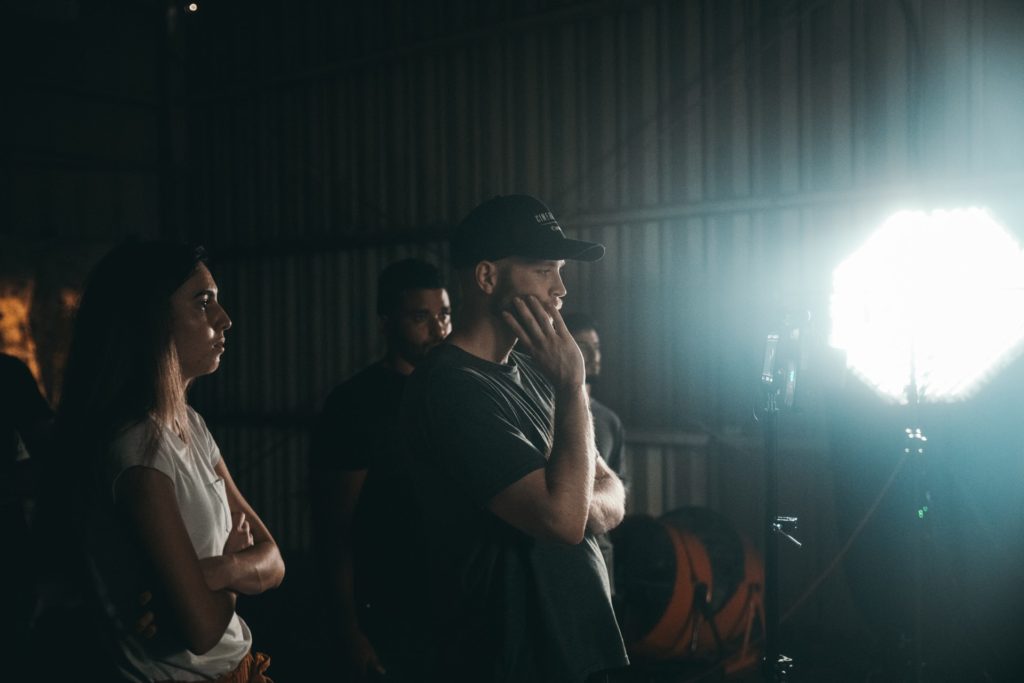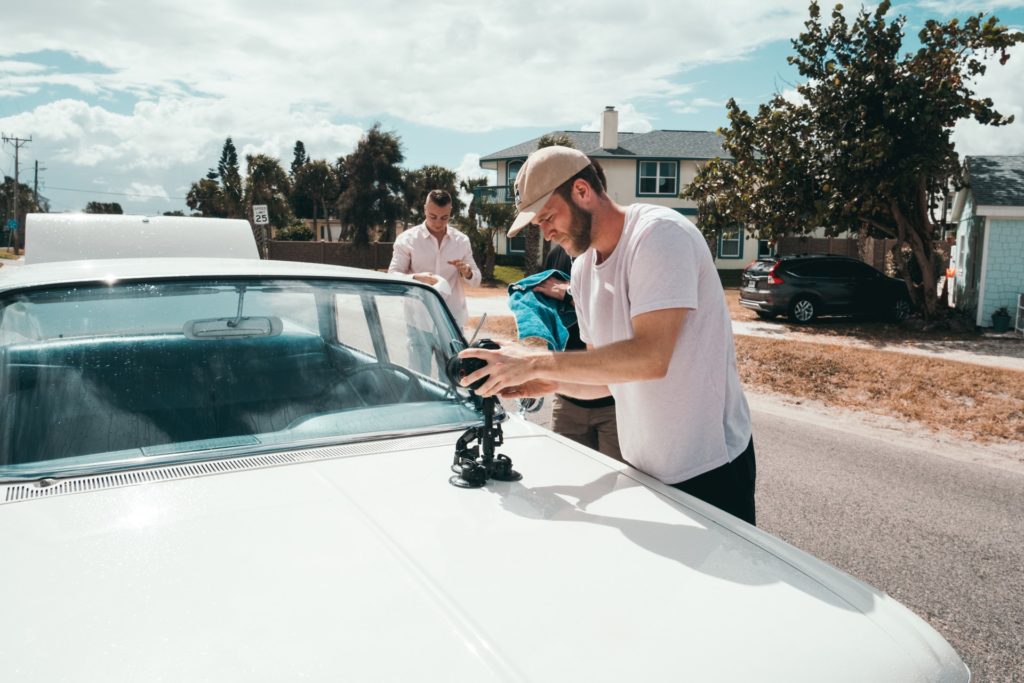Pros and Cons of Getting an MFA in Film
A thought that crosses any aspiring filmmaker’s mind is the question of whether or not he or she should get their MFA, or their masters of fine arts, in film.
Depending on your MFA program, you may have to pay out of pocket to produce your own short film. Or, you may have to produce and submit a short film to even apply for your program. If this is something you’re interested in doing but you’re unsure where you’ll get the funds, consider looking into our funding opportunities to put yourself in the running to win up to $10,000 in funding and other pieces for your film!
The reason why getting your MFA is such a widely discussed question is because for someone interested in media studies or being a visual storyteller, there are so many pros and cons to getting your MFA in film.
Let’s start by going over some pros.
Pros of Getting your MFA
The Program Forces you to Work
Filmmaking is a craft that can be learned and produced independently, which requires an intrinsic motivation. By participating in an MFA program, you are forced to work and forced to learn more about the craft.
Getting your MFA helps you to gain knowledge in addition to gaining further inspiration as a filmmaker.
You Come Out of School with a Finished Product

Linked with the previous point, when you finish your MFA, you have a final product or products which you can add to your reel or portfolio.
This is extremely important because when someone in the industry is deciding whether or not they want to work with you, something they will want to see is your reel and your previous experience with filmmaking.
Of course, this is something you can produce on your own without schooling, but by getting your MFA, you will have professional help and colleague feedback to help better your final products and your reel which will help you get far in the industry.
You’ll Have Access to Feedback
In your program, you will meet people who have the same drive and passion as you for filmmaking. You will have immediate access to individuals who are willing and excited to talk about film and this will provide you with a platform of filmmakers with whom you can work.
Of course, you can find passionate individuals outside of an MFA program, but it will become increasingly difficult to find people like this, and if you do, it will be difficult to find a time that works for all of you to work together.
You’ll Have Critics to Help You

This point links with the previous ones, but you will be surrounding yourself with educated filmmakers in your program who will be able to help and critique your work and help you to make it better.
Outside of a film program, you’ll always be able to receive feedback, but it might not be as pointed or keen as it would be coming from the eyes of educated filmmakers.
Networking
An MFA program will also help expose you to networking opportunities. Chances are, your professors are successful filmmakers themselves, and if they are not, then they have friends or access to opportunities to find people who are.
Additionally, if your name is attached to a successful MFA program, that increases the likelihood of you being invited to networking events exponentially.
The filmmaking industry is all about networking and getting your name out there and being part of an MFA program only increases those opportunities.
You Will Have Immediate Answers

Something that filmmakers always have is questions; there is always going to be something you do not know.
If you’re in a film program, you will have constant access to people who not only have answers to your questions, but people who support you as well.
If you’re not in a film program, you’ll still be able to find answers to your questions through research and books, but it won’t come as easily as it would if you were participating in an MFA program.
It Looks Great on a Resume
No matter what program of study you’ve participated in, you know the importance of a resume. Having a filmmaking MFA on your resume will help you exponentially when employers are looking at your resume and deciding whether or not they want to hire you.
It will prove that you not only have the drive as a filmmaker, but also the education and experience that they are looking for.
It Gives You Freedom
If you get your MFA in film, you’ll have the freedom to create the work you want, whereas if you do not and you’re searching for jobs, you could end up freelancing and potentially making art that you know people will want to see but art that doesn’t necessarily hold your passion.
As you can see, there are many positives to getting your MFA in film. On the flip side, there are nearly as many cons. Let’s explore some of them.
Cons of Getting your MFA
Cost

Like any schooling, getting your MFA in filmmaking is. not. cheap. There’s no way of sugarcoating it; it isn’t a cheap endeavor.
If you think about it, the money that you use to attend grad school could also be used to make a film.
So it comes down to this: do you think your money is best spent on more schooling or on making that film you’ve always dreamed of producing?
You Can Learn the Craft on your Own
There are countless resources online that can help you to learn more about film. Take, for example, MasterClass, which features numerous teachers who each teach you different aspects of film. They also have articles about film, much like the ones you find here on our blog.
There are so many videos, tutorials, and books out there that will help you learn the filmmaking craft.
Granted, learning from these resources will take a certain degree of intrinsic motivation, but it is more than possible for you to learn the craft on your own.
You Aren’t Getting Real World Experience

Although an MFA program is extremely beneficial in the fact that it helps you learn the principles of filmmaking and helps you to network, you are not immersing yourself on a film set whilst in your MFA program.
Filmmaking is something that requires hands-on experience, and while you’re learning about filmmaking and producing art on a smaller scale, sometimes, it’s more beneficial to actually be on a set and take a more hands-on approach.
Getting Right into the Industry Can Be More Beneficial
Very similar to the previous point, if you can score a position as a PA or working in the mail room, you’re already onto the first step of networking that you’d get if you got your MFA.
There is no correct way of getting your foot in the door, and if the opportunity arises for you to take a job as a PA or in a mailroom, take it!
Not All MFA Programs are Created Equal
Before committing to a program, make sure you choose one that matches the goals you have for your future.
Programs are individual and not cookie cutter. Make sure you’ve done your research and picked a program that best suits you, because not all of them will.
Programs are Highly Competitive
As unfair as it sounds, just because you’ve decided you want to attend grad school, it doesn’t necessarily mean you will get in.
Furthermore, if you do get in, keep in mind that it’s not always going to be smooth sailing; you and your classmates are likely going to share the same goals and be fighting for the same positions.
You aren’t handed a job just because you’ve earned your MFA, you still have to work for it.
You Always Have People to Help You

The thought of helping create a movie is exciting, regardless of whether or not you’re asking a skilled filmmaker or just one of your best friends. If you ask someone to help you create a movie, the likelihood of them saying no is slim.
Similarly, if you ask someone to watch something that you’ve created, they are more than capable of giving you feedback, even if they don’t have the trained knowledge of a filmmaker or film student.
So even if you aren’t in the position to create a network of filmmakers within your MFA program, you will always have people who are more than willing to help you out.
As you can see, there are countless reasons why you should or should not get your MFA in filmmaking. Unfortunately, there is not a “correct” answer as to whether you should or shouldn’t.
What we can tell you though is that you need to make the decision that is best for you.
What’s best for your friend may not be the thing that is best for you and that’s okay. You just have to allow yourself to be in the position where you’re educated enough to make the decision for yourself, and we hope this list of pros and cons helped with that.
If you’re ready to make your own narrative film but not enrolled in an MFA program and are in need of funds, check out all of our contests for your chance to win up to $10,000 in funding for your film.